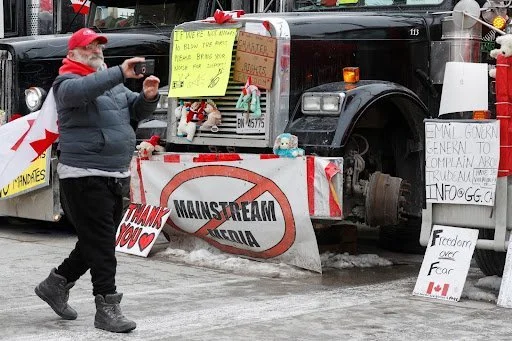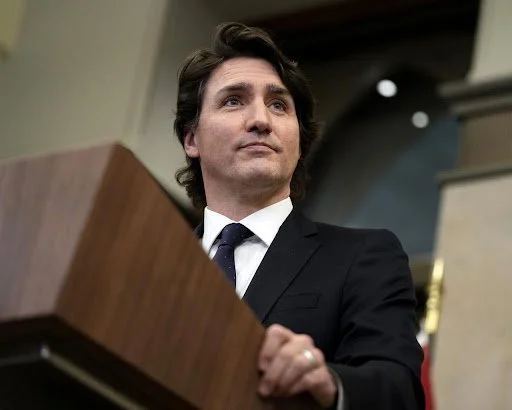Canadian Government Clamps Down As “Freedom Convoy” Protest Continues
Almost one month after it first started, protests continue in Ottawa over Canadian COVID-19 restrictions, as trucks and convoys continue to obstruct the area. Dubbed the “Freedom Convoy,” the protests initially started due to the Canadian government requiring truckers crossing the border to have received two doses of the coronavirus vaccine. At its peak, more than 4,000 trucks reportedly blocked the streets of Ottawa, causing chaos and disruption in the Canadian city.
While the density of convoys have decreased, tensions still remain high. On Monday, four of the protestors were arrested on charges with conspiring to commit murder. Royal Canadian Mounted Police (RCMP) reported that Canadians Chris Carbert, Christopher Lysak, Jerry Morin, and Anthony Olienick were found with a large supply of weapons and displayed, “a willingness to use force against the police.”
Canadian authorities also recently cracked down on the protestors’ source of income, ordering banks and exchanges to sanction 34 crypto wallets connected to the protests. Protestors have been largely reliant on digital funds, but with the new action, which banned Bitcoin, Ethereum, and other cryptocurrency platforms from allowing protestors to receive transactions, it is likely these funds will no longer be a viable option.
The crackdown comes as Prime Minister Justin Trudeau invoked the Emergencies Act, marking its first usage since the law was initially passed in 1988. Under the act’s purview, the government can temporarily suspend free speech and assembly, as well as authorize the deployment of the military. While some have viewed the act’s deployment as an overstepping of bounds, Trudeau has reassured the public that the act will be utilized in a “time-limited and targeted, reasonable, and proportionate” manner.
While the blockade was a public nuisance, it also had a tangible effect on the American and Canadian economies, with reports stating that the dual economies were projected to lose $50 million per day. As a result of the obstruction of Ambassador Bridge, which connects Detroit to the Canadian city of Windsor, businesses reportedly lost $300 million.
Although protestors are largely Canadian citizens, the Freedom Convoy has attracted the attention of the American right. Leaked data revealed that more than 56 percent of donations sent to Canadian protesters came from American addresses. Domestically, there were also concerns over a potential American “Freedom Convoy” occurring at the Super Bowl, according to a memo from the Department of Homeland Security.
Several American right-wing leaders have also expressed support for the protests. MyPillow CEO Mike Lindell, a former advisor to ex-President Trump, announced that he would airdrop pillows to the protestors, although Lindell was later found to have been banned from entering the country due to lacking proof of vaccination or a negative PCR test. U.S. Senator Rand Paul (R-KY) also urged Americans to similarly take action, stating he hoped truckers come to America, “and…clog up cities.”


